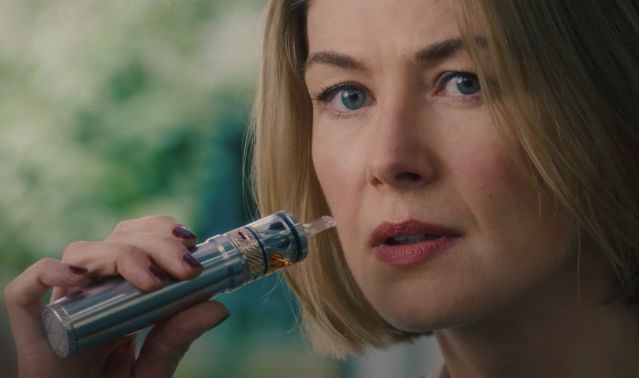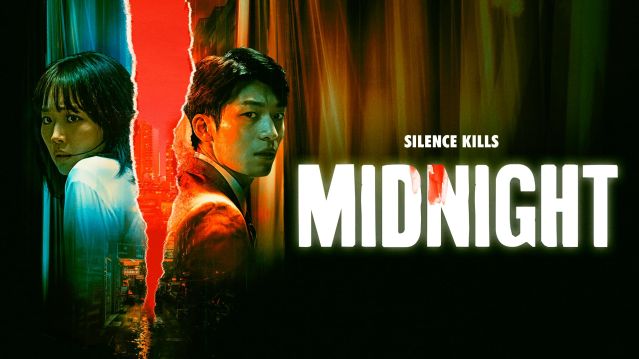10 Films for Survivors of Psychopathic Abuse. Revenge against the psychopath. Reviewed by Devon Frye

KEY POINTS-
- Victims of psychopathic abuse often struggle to find adequate redress for the pain they've suffered.
- Victims of abuse can develop C-PTSD and may harbor strong fantasies of revenge against their perpetrator.
- Film allows psychopathic abuse survivors a safe-enough way to work through and normalize desires for revenge.
Survivors of narcissistic and psychopathic abuse are often left bereft of resources. For victims of psychopaths, especially, typical forms of social redress are either unavailable or insufficient. Psychopaths may be experts at manipulating those in their orbit. Their often cool, callous, and charming demeanor means they may be able to seduce even the strongest among us. Police officers, doctors, lawyers, judges, juries, social workers, and therapists are not immune to their manipulations.
Because psychopathic abuse attacks a person’s insides—their emotions, perceptions, thoughts, language, sense of self and others, and spirituality—it’s difficult for outsiders to perceive the damage done. Victims can appear to be the “problem” in the relationship because of their emotional dysregulation, lack of self-confidence, and profound paranoia of others.
What’s worse, as I’ve written elsewhere, institutions like the court system often re-victimize survivors when they seek justice, resulting in what Jennifer Freyd calls “institutional betrayal.” Even when survivors win in court, grief and pain linger, often for the remainder of a victim’s life.
Horror films offer survivors the opportunity to imagine worlds where psychopathic characters get their due. Abuse survivors may have what's known as complex PTSD (C-PTSD). A classic symptom of this disorder is fantasies of revenge upon the person or people who inflicted the abuse.
One way survivors can work with these fantasies is by watching films where justice is available to survivors. Some of these films offer a spiritual comeuppance where otherworldly figures can intervene where mortals cannot.
The following ten films give survivors what they may so lack in the real world: a sense of cosmic balance. In the real world, survivors are often asked to offer forgiveness to properly heal. These films complicate forgiveness and encourage survivors not to “spiritually bypass” through necessary feelings of rage and desires for revenge.
Instead of running towards forgiveness to appease outsiders’ expectations or society’s demands, psychopathic abuse survivors can use these films to honor the complexity and darkness of grief and healing. These films insist that fantasies of revenge can be channeled in a safe-enough way to inspire survivors to keep going, despite the obstacles that lay ahead.
10. "I Care a Lot" (J Blakeson 2020, Netflix)

Rosamund Pike nabbed a Golden Globe for her portrayal of Marla Grayson, a con artist who preys upon rich elderly people by becoming their legal guardian and liquidating their assets. Grayson has all the hallmarks of a slick psychopath: callous, unemotional, fearless, and just fucking cool. All is well until she messes with Dianne Wiest’s Jennifer Peters, a woman with ties to some powerful men.
I felt the ending was a cop-out, but the performances throughout are scrumptious. Check out this film if you’re looking for a showdown between two psychopaths and the increasingly chaotic mayhem they put each other through.
9. "The Nightingale" (Jennifer Kent 2018, Hulu)

Jennifer Kent’s follow-up to the beloved 2014 "The Babadook" trades in a story of supernatural grief for a piece of brutal historical realism. Aisling Franciosi plays Claire, an Irish convict sent to Tasmania in 1825. She goes on a cross-country quest for revenge with an Aboriginal man named Billy (Baykali Ganambarr).
When I saw this film in theaters, I walked out, only able to return to the film a year later. This isn’t an easy watch. By framing the white colonizers in such a bleak, callous, unemotional light, however, Kent reveals how colonial ideology is held up by psychopathic desires.
8. "The Innocents" ("De uskyldige" in Norwegian, Eskil Vogt 2021, Shudder)

This strange Norwegian film asks what would happen if a superhero were born a psychopath. Director Vogt doesn’t shy away from depicting the cruelty of childhood, even for children who will eventually grow into empathic adults.
Emotional and physical neglect, childhood rage, and neurodiversity are all on display here, though the racial politics of the film were underbaked for this film viewer. Still, "The Innocents" gets major points for adding to the “creepy kid” genre with surprising and cathartic results.
7. "Addams’ Family Values" (Barry Sonnenfeld 1993, YouTube, The Roku Channel)

Not all revenge fantasies need be dour. 1993’s "Addams’ Family Values" was a staple on my television screen growing up in the mid-90s. Joan Cusack’s turn as the pastel psychopathic “black widow” Debbie Jelinsky is a master class in camp.
The rest of the cast—including such heavy hitters as Angelica Houston, Christina Ricci, Christine Baranski, and Christopher Lloyd—skewer suburban norms with such deadpan glee that you can’t help but smile. Cusack’s closing speech includes what was once the best monologue delivered about a Barbie on film, topped only by this year’s "Barbie" (2023).
6. "Violation" (Madeleine Sims-Fewer and Dusty Mancinelli 2020, Shudder)

"Violation" returns us to the harrowing. Star and co-director Madeline Sims-Fewer plays Miriam, a woman sexually assaulted by her brother-in-law. The film jumps between present and past—a present where Miriam exacts revenge, and a past where no one, including Miriam’s sister, believes her.
This isn’t a cathartic film. Whatever pleasures we imagine we’d feel when enacting revenge, this film shows a much less satisfying reality.
5. "A Dark Song" (Liam Gavin 2017, Amazon Prime AMC+)

Catherine Walker plays Sophia, a woman torn apart by grief after the death of her son. This taut, creepy, supernatural slow-burn sees Sophia isolating herself in an old manor with an occultist named Joseph. Joseph puts Sophia through any number of harrowing rituals to summon her guardian angel, an angel that will offer Sophia one wish. Sophia’s wish is to enact revenge upon the man who killed her son.
The film holds its cards close to its chest, never landing on whether this spiritual quest is nothing more than the delusions of a grieving woman. Stick around to the end for some true catharsis.
4. "Midnight" (Kwon Oh-seung 2021, Shudder)

This South Korean horror-thriller sets up a cat-and-mouse chase between a deaf and mute woman and her mother when they accidentally get in the path of a murderous psychopath. The creative sound design creates a mesmerizing film experience.
There are so many moments where the serial killer is almost caught, only to talk his way out of whatever bind he finds himself in. Many survivors will find themselves screaming at the cops on screen in solidarity with the film’s protagonists when the serial killer manipulates reality with ease.
3. "Glorious" (Rebekah McKendry 2022, Shudder)

A man reeling from a recent breakup gets drunk, passes out, and the next morning enters a bathroom where a demigod named Ghatanothoa speaks to him through a glory hole, setting off a chain of events that might end with the destruction of the universe. And that’s just the first ten minutes of the film.
There’s a reason this film is on this list, but it’s best not to reveal any spoilers. Go into this film without any expectations and get the popcorn ready. It’s a fun, bloody ride.
2. "A Wounded Fawn" (Travis Stevens 2022, Shudder)

"A Wounded Fawn" turns towards the spiritual to teach a psychopathic man a lesson. The film uses Greco-Roman mythical beings to intervene in the lives of mortals when a predator can’t be stopped by ordinary means.
There’s something so satisfying about a psychopath meeting spiritual justice, particularly as such characters lack remorse, empathy, or an awareness of anything beyond the material here and now.
1. "Revenge" (Coralie Fargeat 2017, Shudder)

What revenge list would be complete without Coralie Fargeat’s 2017 film, "Revenge"? The film has Laura Mulvey’s 1973 article, “Narrative Cinema and Visual Pleasure,” on its mind.
In this seminal work, Mulvey uses psychoanalysis to lay out concepts such as the male gaze, female fetishization, and phallocentric narcissistic projective identification. Fargeat’s film begins by using sexualizing film techniques common for the male gaze: a focus on the young woman’s body, skimpy costume designs, and an isolated mise-en-scene. As viewers, we’re complicit in sexualizing this young woman just like the men in her orbit.
That changes, however, after she's sexually assaulted and left for dead. Pay attention to point-of-view shots, especially, to determine which character is in control at any given moment.
- Questions and Answers
- Opinion
- Story/Motivational/Inspiring
- Technology
- Art
- Causes
- Crafts
- Dance
- Drinks
- Film/Movie
- Fitness
- Food
- Games
- Gardening
- Health
- Home
- Literature
- Music
- Networking
- Other
- Party
- Religion
- Shopping
- Sports
- Theater
- Wellness
- News
- Culture
- War machines and policy

